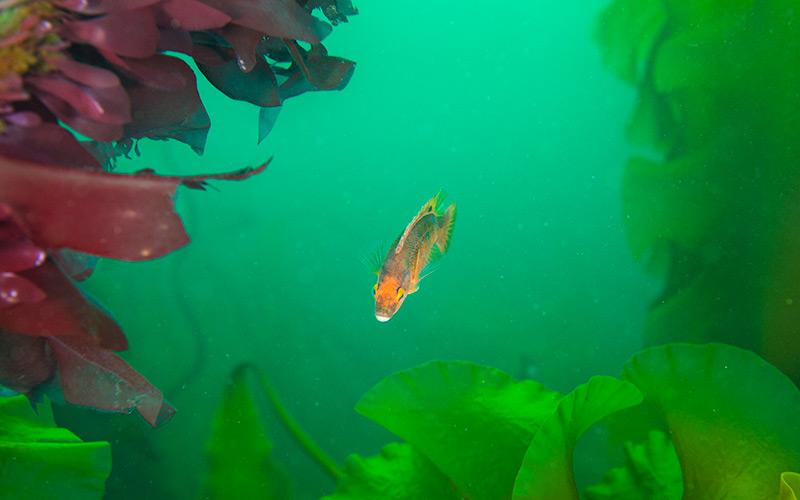
Fish swim among kelp at Cashes Ledge. Photo: Brian Skerry
July 29, 2024 (Boston, MA) – Conservation Law Foundation (CLF) on Monday submitted a nomination to make the Cashes Ledge Area, encompassing an extraordinary undersea mountain range and one of the most unique ecological structures in U.S. ocean waters, a National Marine Sanctuary.
This area in the central Gulf of Maine features the deepest and densest cold water kelp forest on the eastern seaboard and harbors a treasure trove of marine life living among its peaks and valleys. Sanctuary status would protect the diverse habitats of Cashes Ledge, ranging from lush kelp to rocky pinnacles to deep muddy basins, and provide refuge for an astounding diversity of marine life, from the Atlantic wolffish to the rare blue sponge to the unusual red cod.
“Cashes Ledge is the crown jewel of the Gulf of Maine,” said Priscilla Brooks, Vice President of Ocean Conservation for CLF. “Measured by any scale, the Cashes Ledge Area warrants permanent protection to ensure that its intricately connected habitats and unique ecosystem can serve as a reserve of ocean biodiversity, productivity, and an offshore ocean laboratory for scientific research. Beneath the waves, Cashes Ledge is as breathtaking and dramatic as any national park, and deserves similar protections.”
With the Gulf of Maine warming faster than 97 percent of the global ocean, the largely intact habitats and biological communities of the Cashes Ledge Area constitute a tremendous opportunity for biodiversity and climate stewardship. Designating the Cashes Ledge Area as a national marine sanctuary would help preserve and protect its extraordinary and vulnerable wildlife and habitats. Permanently protecting the area would also provide unparalleled scientific research and education opportunities and build climate resilience in a region that is among the fastest warming in the world’s ocean.
You can read a PDF of CLF’s nomination submission.
CLF experts are available for further comment.
###
